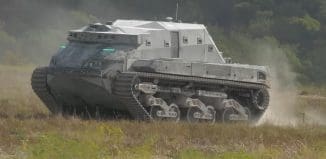DARPA’s Forthcoming Cyber Defense Competition
This post is also available in:  עברית (Hebrew)
עברית (Hebrew)
Seven computers will compete in the first all-machine cyber defense tournament on Aug. 4 in Las Vegas. This is the result of a multiyear effort by the Defense Advanced Research Projects Agency DARPA to bring autonomy to the problem of making computers secure.
DARPA offers a track for teams who want to submit a proposal and receive initial funding to compete, and an open track for anyone in the world who wants to enter their own intellectual property without DARPA funding.
According to the US Department of Defense website, the competition is expected to deliver cybersecurity at network speeds by computers that look at all the bits, all the time, without human help. “Today the comprehension [of] and reaction to unknown flaws in software is entirely manual,” said Mike Walker, program manager for DARPA’s Cyber Grand Challenge.
The best statistics indicate that when intruders have access to an unknown flaw and are using it to break into computers, on average they can use the flaw for 312 days before it’s discovered, and software vendors have about 24 median days to patch, he said. Both of those times are coming down, he added, but the amount of time it takes to discover, comprehend and react to an unknown flaw is about a year.
“We want to build autonomous systems that can arrive at their own insights about unknown flaws, do their own analysis, make their own risk-equity decisions about when to field a patch and how to manage that patching process autonomously and bring that entire … timeline down from a year to minutes or seconds.”
The machines at the competition are DARPA-constructed high-performance computers. They’ll operate on an open-source operating system extension called DECREE — for DARPA Experimental Cybersecurity Research Evaluation Environment — built only for computer security research and experimentation.
The results will be open-source to the world as they happen, and every single piece of software the machines have written and will write will go on a public server in perpetuity, DARPA officials said.
The Cyber Grand Challenge is co-located this year with the world series of hacking: Def Con, one of the world’s largest hacker conventions.
The day after DARPA’s event, Walker said, the autonomous system that wins the Cyber Grand Challenge has been challenged to play in a Def Con community capture-the-flag contest, a competition with at least two decades of history.
“That contest is actually post-DARPA’s involvement with the technology,” he added, “and could actually be considered the first step in the open technology revolution.”






























